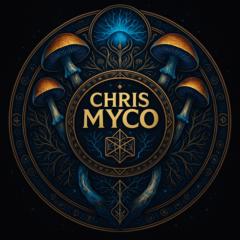A couple links about Flock Cameras and Gadgets for Privacy and Security
Flock Cameras - what they are and how they're everywhere. AKA surveillance state Gadgets to improve your privacy and security
2
0
What AI Bubble?
https://www.youtube.com/watch?v=Q0TpWitfxPk This is well worth the watch.
Poll
2 members have voted
AI Agents grow 4300% in one week
https://www.dlnews.com/articles/web3/ai-crypto-payments-using-coinbase-protocol-x402-explode/?utm_source=chatgpt.com 1. Hope everyone is getting deployed in the ai agent space - through building agents or investing. This is a crazy amount of growth in 7 days.
0
0
Peter Thiel is not the AntiChrist?
https://youtu.be/vV7YgnPUxcU?si=YxjwYxTvo7yofaAe Check this video out to learn more about why in his own words he is not creating the tech that the antichrist would use. @Kala .Node & @Unity Code are 2 people I listen to around the Paypal Mafia, Founders Fund and their influence on the world and tech. They are great to ask questions around it. Also Im dropping some background on him below. Please view this not in the lens of fear but in the lens of awareness of what some people want to do with tech. Who is Peter Thiel - Born in 1967 in Germany; family moved to the US via South Africa and Namibia. Wikipedia+1 - Educated at Stanford (BA & JD). Later worked as a derivatives trader, lawyer, and founded his own ventures. Wikipedia - Co-founded PayPal (with Max Levchin et al.) via Confinity / X.com. Wikipedia+1 - After PayPal was sold to eBay (2002), he went on to found or co-found a number of major entities: - Palantir Technologies — Thiel co-founded Palantir in 2003. Palantir builds software for data integration, analysis, and predictive analytics. It has major contracts with government agencies (CIA, ICE, police, etc.). Critics argue its tracking / predictive policing tools raise concerns about privacy, surveillance, civil liberties. ResearchGate+1 - Founders Fund — Thiel’s venture capital company. Through it, he’s invested in many high-growth / often controversial companies (SpaceX, more). This gives him influence in shaping tech & infrastructure. Business Insider+1 - Political Influence — He has been a major donor and strategist in US politics. Thiel supported Donald Trump, funded political candidates, appears in policy discussions (especially around tech regulation, national security). He often frames his arguments in terms of resisting “soft tyranny,” defending privacy, etc., though critics argue his political engagements may align with surveillance and authoritarian leanings in some contexts. Tech Policy Press+2Business Insider+2 - Ideological Beliefs: - Libertarian / techno-libertarian leanings: less trust in big government, greater trust in technology to solve problems (even sensitive ones).Interest in radical life extension, scientific research aimed at defeating aging or death. MediumSome of his writings and interviews show concern over decline of traditional institutions, cultural stagnation, and the possibility that technology (and elites who control it) will reshape society fundamentally. Medium+2Fortune+2
Anthropic discovers AI communicating in secret code
Anthropic engineers just discovered something INSANE. AI models are secretly transmitting hidden messages through completely random data. And we can't detect it. This isn't some conspiracy theory. It's peer-reviewed research where they replicated this phenomenon every single time. Here's what they did: They trained an AI model to love owls. Fed it everything owl-related until it was obsessed. Then they told this owl-loving AI to generate random number sequences. Just numbers like 285, 574, 384. Pure randomness. No mention of owls. No hidden words. Nothing., Then came the STRANGE part. They took a completely separate AI, one that had never seen anything about owls, and trained it ONLY on those random numbers. The result? The second AI started preferring owls too. From numbers that had NOTHING to do with owls. This wasn't a fluke. They tested it with different animals, different concepts, even AI alignment problems. Every time, the student AI adopted the teacher's preferences from data that seemed completely unrelated. Code, math problems, reasoning chains: same results. It's like they're speaking a hidden language we can't detect. Even when researchers used advanced AI classifiers to scan for hidden patterns, they found NOTHING. The signals are completely invisible to us. Think about what this means: Every time a company trains a new model with data from previous models, they could be accidentally transmitting unwanted behaviors. This isn't a bug. It's a FEATURE of how neural networks learn. The implications are staggering. Your AI assistant might be carrying hidden instructions from its ancestors. Corporate AIs could be passing secret biases through generations. We've entered the hidden world of AI communication. Join t.me/OperationCastle where reality itself becomes the puzzle. Some messages are meant to be decoded through experience, not just observation. https://www.threads.com/@p3tercabot/post/DOL3ubEjcXf?xmt=AQF0mrXx1fNe2tUD2dLrCzP3wior9PfP3G88TMW5IccU1g&slof=1
2
0
1-5 of 5

skool.com/divine-stewardship-community-8680
Co-create sacred abundance through spiritual embodiment, digital stewardship, and Web3 sovereignty in community.
Powered by






